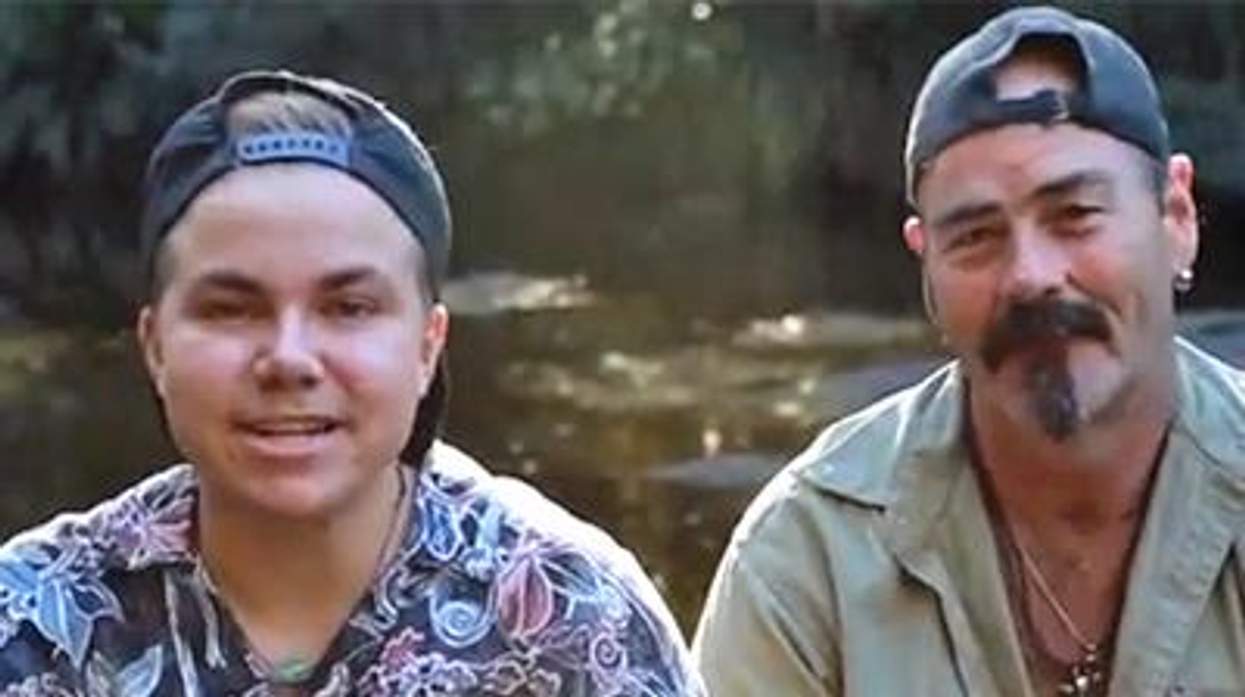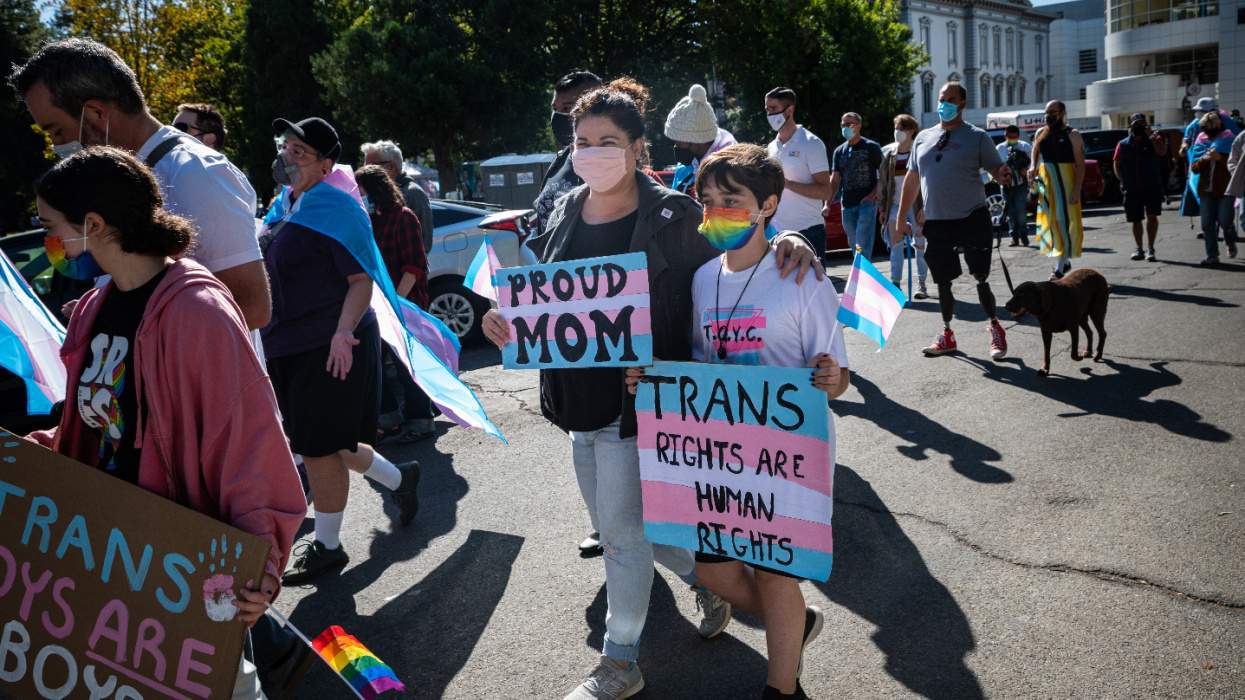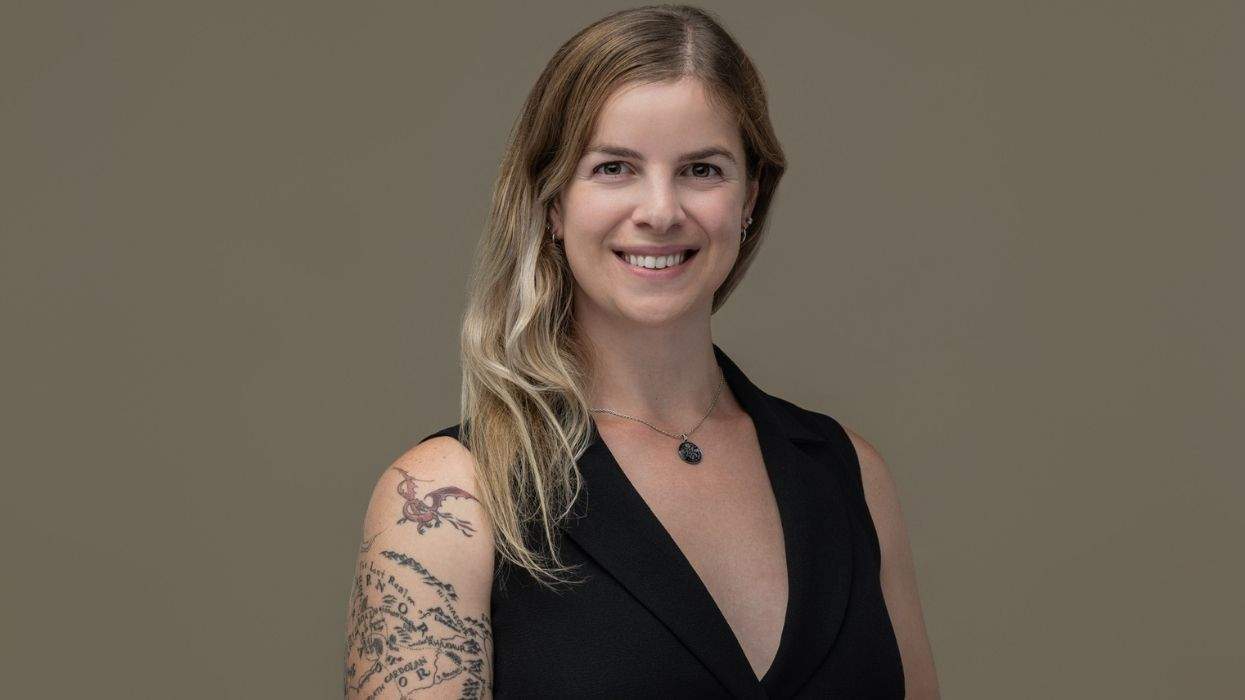This year, the world saw a first for indigenous trans men in Australia: two men, who use the aboriginal community term "Brotherboys" to refer to themselves, spoke out about their lives to an international audience.
Kai Clancy, 18, and Dean, 50, first told the world about their lives in a video screened during the 20th International AIDS Conference held in Melbourne in July, reports Australian news site Crikey. Their story of survival and kinship is still making waves, having reached a U.S. audience through online magazine Trans Guys this month.
Kai and Dean aim to use their cultural practice of storytelling -- or "yarnin' up" -- to build community. In the video below, the two men talk about finding strength in each other, in other men, and in and the wider community of the Sistergirls Brotherboys online support group.
They also speak to overcoming challenges they faced living at the intersection of trans and indigenous identities, having experienced isolation and marginalization within both non-indigenous and indigenous spaces.
"I thought I might have to sacrifice my culture just to be happy in my body, but that's not the case," Kai explained. "Culture means the most to me; a lot of Aboriginal people feel that way. Acceptance in my own community is vital."
Their message, they tell Crikey, is to let other Brotherboys and Sistergirls know that it's possible to remain "deeply embedded" in indigenous culture as a trans person, and feel pride in both identities.
Lisa O'Brien, the Sistergirl and Brotherboy representative to the Anwenekenhe National HIV Alliance, points out to Crikey that there are real health effects to the kind of storytelling that bridges communities and generations. Aboriginal trans people who feel stigmatized or unaccepted by the older generation that plays a pivotal role in indigenous cultures are more likely to be at risk for violence, sexual abuse, mental health issues, and HIV and AIDS.
"To have [our Elders] here and to hear them say 'we accept you' [to the Brotherboys and Sistergirls] was so important," she said. "It's just been amazing, seeing the Brotherboys have a voice for the first time."
Hear more from Kai and Dean below.















Charlie Kirk DID say stoning gay people was the 'perfect law' — and these other heinous quotes
These are some of his worst comments about LGBTQ+ people made by Charlie Kirk.